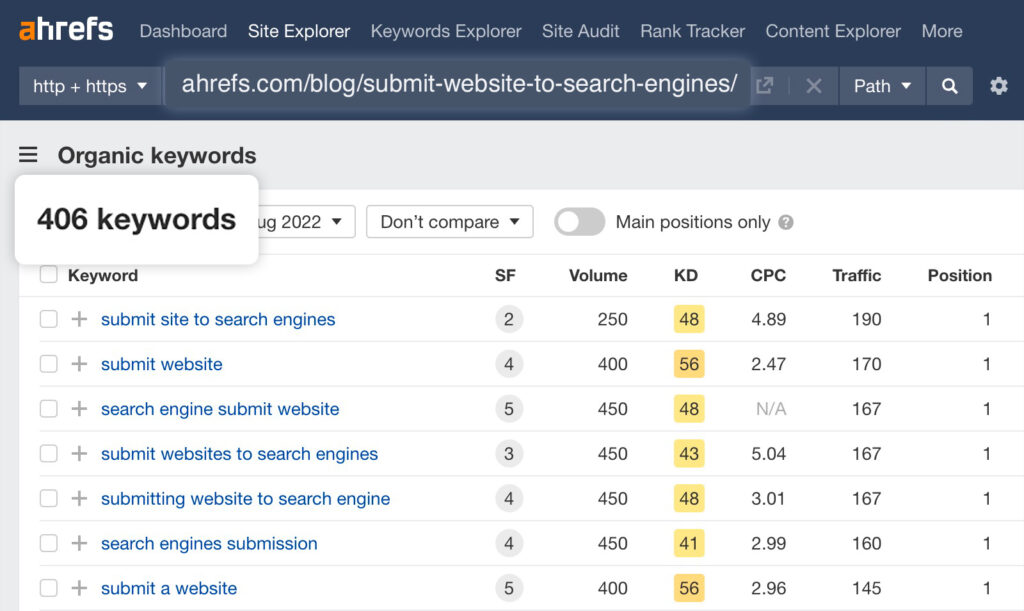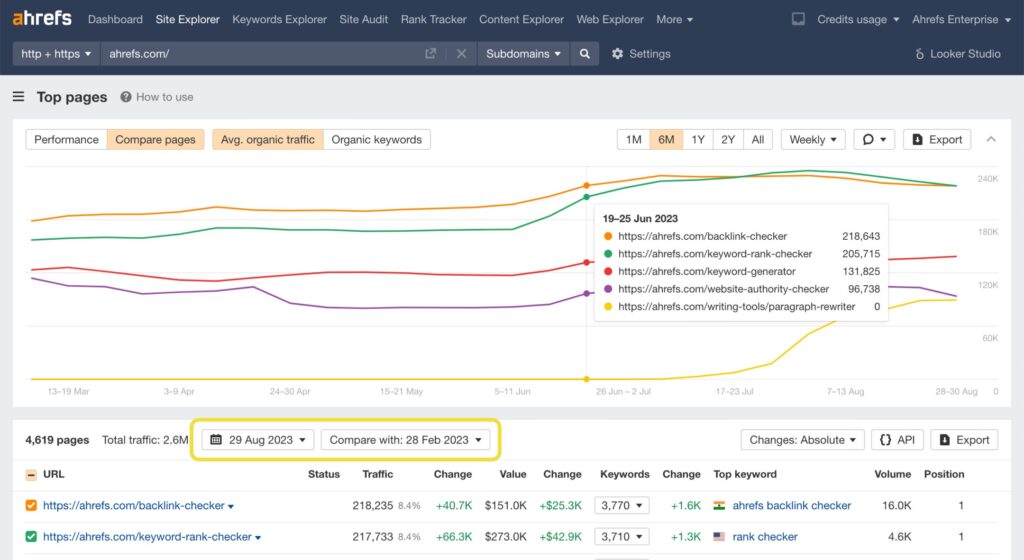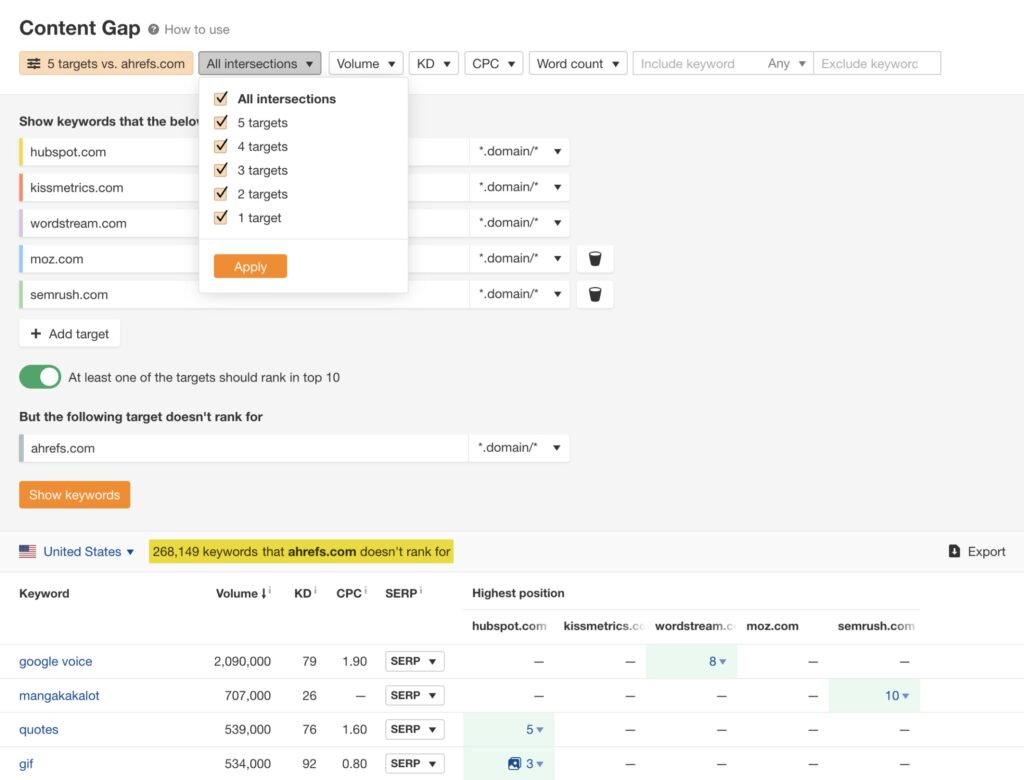
Your competitors are ranking higher. They’re getting more traffic. They’re getting more leads.
But what if you could ethically steal traffic from your competitors—using their own strategies, keywords, and content gaps against them?
That’s not only possible—it’s smart marketing.
In this detailed guide, we’ll walk you through how to steal traffic from your competitors using proven, data-driven SEO and content tactics. No guesswork. No fluff. Just actionable methods you can implement today.
Why Should You Care About Competitor Traffic?
Understanding how to steal traffic from your competitors gives you a shortcut to:
- Discover keywords already bringing them traffic
- Identify weak points in their content
- Build better, more targeted resources
- Earn rankings that shift traffic in your direction
This isn’t about copying—this is about outperforming.
Step-by-Step: How to Steal Traffic from Your Competitors
1: Identify Your Real Online Competitors
Your offline competitors might not be your biggest threats online.
To find who’s getting traffic in your niche:
- Google your top keywords
- Use tools like Ahrefs, SEMrush, or Ubersuggest
- Check the top 10 organic results, not ads
Create a list of 5–10 competitors ranking higher than you for your target terms.

2: Spy on Their Best-Performing Content
Once you’ve identified your competitors, dig into their top pages.
Tools like:
- Ahrefs → Site Explorer → Top Pages
- SEMrush → Organic Research → Pages
- SimilarWeb → Referrals + Search
This will show:
- Pages that get the most traffic
- Keywords ranking per page
- Traffic potential per keyword
Action Step: Export their top 50 URLs + associated keywords for analysis.

3: Analyze Their Keyword Gaps
Find keywords they rank for that you don’t.
Use:
- Ahrefs → Content Gap Tool
- SEMrush → Keyword Gap
- Ubersuggest → Keyword Opportunities
Focus on:
- Low to medium competition terms
- High CPC (buyer intent)
- Informational queries (great for blog traffic)
Action Step: Target these keywords with fresh, optimized content.

4: Outrank Them with 10x Content
Once you’ve found what’s working for them, build something better:
- More detailed (add case studies, data, FAQs)
- Better design (UX, images, visuals)
- More up-to-date
- Add video, downloadable assets, and unique insights
Use the Skyscraper Technique:
Find their best-performing article → Create a better version → Promote aggressively
Publish improved versions targeting their same keywords and promote them on social + email.
5: Hijack Their Backlinks
If they rank well, it’s partly because of strong backlinks. So, go after those same links.
Use Ahrefs or SEMrush Backlink Tool to:
- Export backlinks to their top pages
- Filter by:
- DoFollow links
- High DR (Domain Rating)
- Contextual mentions
Now:
- Pitch your improved content to the same sites
- Offer guest posts where they were mentioned
- Reclaim broken backlinks (find dead pages and replace with your content)
Action Step: Create outreach campaigns targeting their backlink sources.
6: Target Their Brand Terms with Comparison Content
One powerful move? Create “Brand vs Brand” content.
Examples:
- “Ahrefs vs SEMrush – Which SEO Tool Is Better in 2024?”
- “[Competitor] Alternatives for Small Businesses”
- “[Your Brand] vs [Competitor] – Honest Feature Comparison”
Why it works:
- People searching for your competitor are problem-aware
- You rank for their branded queries
- You offer another option right when they’re looking to choose
Action Step: Write comparison pages targeting their name + alternatives
7: Use Paid Ads to Hijack Branded Keywords
Run Google Ads targeting:
- Their brand name
- Their top product names
- Review-style keywords (e.g., “Is [Brand] worth it?”)
While SEO is long-term, PPC gives instant visibility.
Make sure your landing page includes:
- A comparison table
- Clear benefits of choosing you
- Testimonials or trust badges
Be careful: Always include disclaimers and avoid trademark violations.
Action Step: Launch branded keyword ads with competitive offers.
8: Leverage Competitor Review Sites
Many businesses get traffic from:
- G2
- Capterra
- Trustpilot
- Quora
These platforms rank well organically. Hijack them by:
- Getting listed where they are
- Adding detailed reviews
- Participating in discussions (on Reddit & Quora)
Action Step: Build or improve your profiles on review platforms your competitors rely on.
9: Capture Their Audience on Social Media
Analyze their:
- Most engaging social content
- Commenters and followers
- Ad creatives and targeting (use Facebook Ad Library)
Then:
- Run retargeting ads to people who visited comparison or alternative pages
- Post similar (but better) social content
- Follow and engage with their audience
Action Step: Build pixel audiences using competitor traffic-based content.
10: Offer Incentives to Switch
Once you have their visitors, convert them with:
- “Switch & Save” discounts
- “We’ll Migrate You Free” offers
- “Risk-Free Trial”
Use exit popups, landing pages, and email campaigns specifically designed for competitor traffic.
Action Step: Create dedicated competitor-focused funnels to convert switchers.
Visual Summary Table
| Strategy | Tool | Purpose |
| Keyword Gap Analysis | Ahrefs, SEMrush | Find missed opportunities |
| Top Pages Research | Ahrefs, Ubersuggest | Steal high-performing topics |
| Skyscraper Content | Google Docs, WordPress | Outrank with better content |
| Backlink Hijacking | Ahrefs, BuzzStream | Earn authority from shared sources |
| Brand Ads | Google Ads | Capture buyer-ready searchers |
| Review Listings | G2, Capterra, Quora | Get found in third-party searches |
| Social Targeting | Meta Ads, Ad Library | Engage competitor followers |
Conclusion
If you’re still wondering how to steal traffic from your competitors, the truth is: you’re not really stealing—you’re earning it by doing things better.
You:
- Analyze their strategy
- Fill in their gaps
- Outrank with superior content
- Leverage their authority
- Capture their searchers
This is competitive SEO done right—no black hat, no deception. Just smart, strategic execution.
Want to dominate your competitors on Google? Start with their traffic—and take your share.
